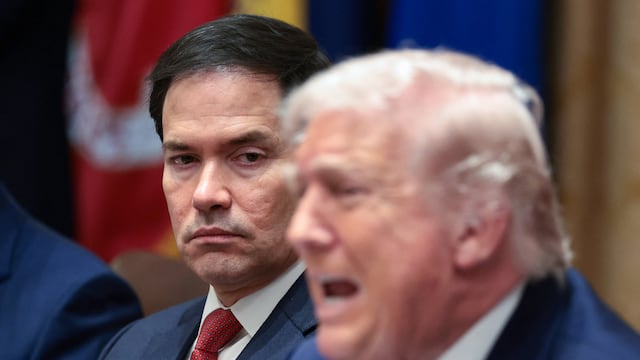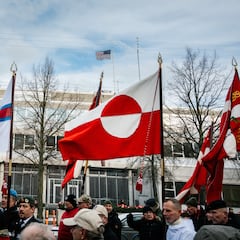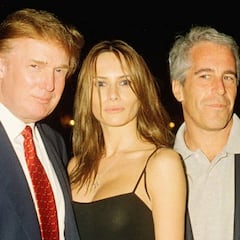Russiagate returns as the Epstein files continue to name names. The U.S. Secretary of State has appeared in the latest release of documents.

What is the Steele dossier? Rubio allegedly linked to funding research on Trump’s ties to Russia in recent Epstein file release
It’s the dossier that just won’t go away. Research about Trump’s ties to Russia appeared in the Steele Dossier, published by Buzz Feed on Jan. 10, 2017.
Why are we talking about the Steele Dossier again?
The Democrats renewed the “Russia-Gate” narrative in the runup to the 2024 presidential elections. The theory was that Russia had interfered in significant ways in the 2016 election to help Trump win the election.
Russiagate became a way to shift blame and level severe allegations of corruption against Donald Trump to undermine the legitimacy of his win.
Epstein to Wolff: The Original Funder for the [Steele] Dossier was Rubio.
— Maine (@TheMaineWonk) January 31, 2026
😶👀 pic.twitter.com/wTu0OkTWzS
Russiagate and the Steele Dossier
Before Donald Trump took office, the release of the Steele Dossier, published by Buzz Feed on Jan. 10, 2017, presented evidence in the form of reports that high-level connections existed between the Kremlin and the Trump campaign.
The dossier was put together by a British intelligence officer by the name of Christopher David Steele, and upon its publication, Democratic leaders and anti-Trump media outlets ran with it.
There have always been doubts about who funded the research and many have accused Hillary Clinton and the Democratic party, but the recent release of the Epstein files puts the spotlight on current U.S. Secretary of State Marco Rubio. As of time of publication, Rubio has not addressed the issue. Actually, this allegation is not new and was published in the Tampa Bay Times back in 2017.
‼️🇺🇸: Jeffrey Epstein sent an email in 2017 stating that then Senator MARCO RUBIO WAS THE ORIGINAL FUNDER FOR STEELE DOSSIER. 👀
— Diligent Denizen 🇺🇸 (@DiligentDenizen) January 31, 2026
Marco Rubio currently wields more authority as US Secretary of State than any other Secretary in history. pic.twitter.com/Xci3CFJY6y
Another question is how successful the Russian government was in its conversations and relationship-building with Trump, his campaign, and his administration. Clearly, Trump’s comments and actions about Ukraine, Greenland and other NATO partners have people wondering now just how accurate the report might have been.
Many analysts have doubted the findings, but Trump’s close relationship to Putin (red carpet in Alaska) and his hostility towards NATO partners follows the plot laid out in the Steele dossier.
The 1st screenshot from the Steele Dossier shows how Russia had compromised & used Telegram over a decade ago. The 2nd shows how MAGA has been encouraged to move to Telegram & most of the worst groups like Proud Boys & others use it. Trump has encouraged MAGA to use Telegram. pic.twitter.com/fHGbXA2HDW
— AnthonyAndrews (@anthon7yandrews) January 29, 2026
Instead of the relationship being formed based on personal interest in the approval or power of the other and a shared worldview that applauds strong men, Russiagate wove a story of corruption or impropriety that could exist between Trump and the Kremlin.
Many questions have also been raised about the relationship between members of the Trump family and the Saudi regime headed up by Crown Prince Mohammed bin Salman.
Two years after leaving the White House, the former president’s son-in-law Jared Kushner, who played a critical role as an intermediary with the government of Saudi Arabia and the administration during Trump’s tenure, secured a $2 billion investment from the crown prince.
Interestingly, Rubio and Trump traded insults in 2016. Rubio referred to Trump as a “con-artist” who was hijacking the Republican party. Like many of those in the Trump cabinet now, they were very critical of the president before being named to their current positions.
Related stories
Get your game on! Whether you’re into NFL touchdowns, NBA buzzer-beaters, world-class soccer goals, or MLB home runs, our app has it all.
Dive into live coverage, expert insights, breaking news, exclusive videos, and more – plus, stay updated on the latest in current affairs and entertainment. Download now for all-access coverage, right at your fingertips – anytime, anywhere.


Complete your personal details to comment